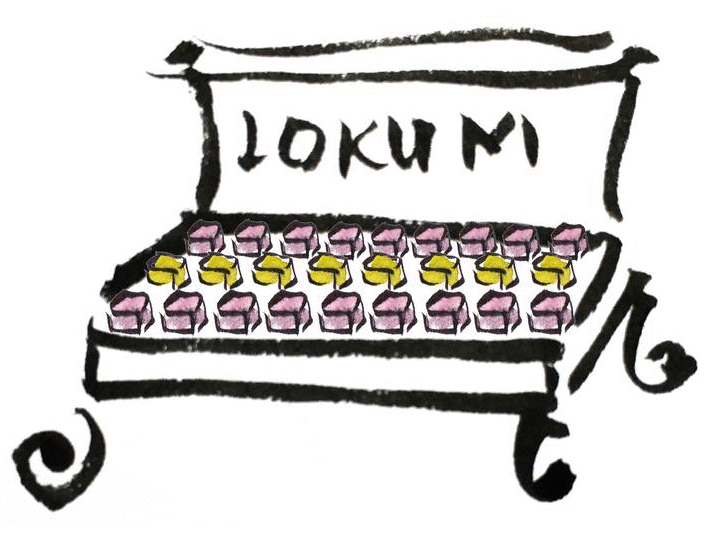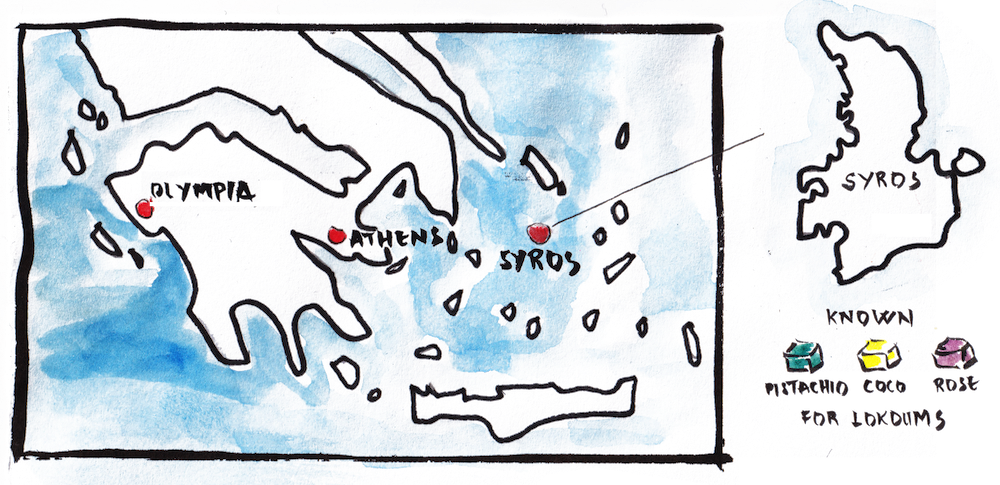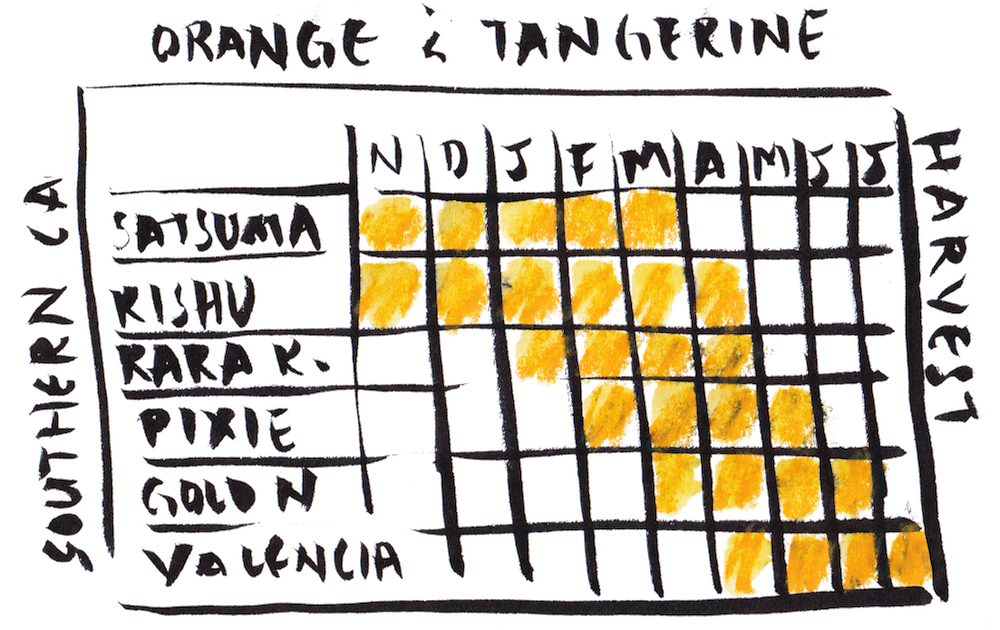Curiosity Index No. 4 A LOKUM OR AN ORANGE?
Dear Friends,
Another month passed in confinement in Paris listening to my mother's childhood stories while moving her out of her house after 40 years. Third move in 6 months between our house in Minneapolis, my dear studio and now this one, I am starting to master the task although with each one my heart is pulled apart ...
One day she tells me the following story:
Her parents' old Greek neighbor Kirya (Lady) Aghlaia moves a couple of houses away. My mother is 6 years old, she goes to pay her a visit. The neighbor is with her brother Vasili. They welcome her and give her the choice between lokums or oranges. Because the lokum is easy to chew and sweeter, she chooses to have one. But it melts in her mouth in a few seconds and she regrets not having chosen the orange. She says “Ah, I should have taken the orange!”. Over the years, going to school by boat crossing the Golden Horn she regularly comes across Vasili, who each time gives her a big smile, a shake of the head and a blink of the eye saying “Ah, I should have taken the orange”...
She chose one sweet over another, a decision she regretted very quickly, as has often happened to all of us in so many fields. I have met people who make a decision and move forward never looking back, what a strength! I am more like my mother, tempted by many things and remaining unsettled in my decision.
Often, a satisfaction we attain lays the seeds of some new desire, as stressed by Shopenhauer. In Latin, the word DESIRARE means to regret the absence of something or somebody. We have all experienced that. Starting from this little anecdote from my mother’s life, this month we explored a very small part of our world of sweet temptations..
Ah Lokums! These soft squares of starchy paste a little similar to Japanese mochi that come in many flavors. Although its origins are disputed (Persian? Arabic medicine? Lebanese?) in Istanbul the best Lokum is bought at Haci Bekir (it's "inventor" in 1776 who started his apprenticeship in the Palace) winner of the silver medal at the World Exhibition of 1873 in Vienna. A favorite of the Sultans, it continues to be a traditional present one brings at every level of the society.
Even though Lokums may not have been invented in Greece, when your boat lands on the island of Syros, small merchants greet the visitors with this delicacy which was introduced to the island in 1837.
And what if she had chosen an orange?
This article by Dr Marcus Kohler takes us through the story of this fruit originally from the far east, its culture in the Mediterranean world and later on in Orangeries in colder climates; its symbolism and its connection with the California gold rush where orange juice was used to protect minors from scurvy.
In the 17th century, orange flowers were a reference to chastity (because of their blooming and bearing fruit at the same time) , especially when represented by their white blossoms, a flavor which instantly reminds me of the famous Navettes de Marseille.
In the world of art, one of my favorite paintings with oranges is Gaugain's Nature Morte, but also Matisse's Nature Morte aux Oranges painted in Morocco, owned by Picasso.
I am always fascinated by the designs of the delicate tissu wraps on the Spanish Oranges, all masterpieces of anonymous popular graphic design.
How not to finish this note on the desire and temptation for sweets with the suggestion of the Lebanese director Nadine Labaki's movie Caramel? Is there a better one representing this desire? Here is a version to rent with English subtitles.
Thank you again for taking the time, please don’t hesitate to comment, share and open up your world to us.
Lots of love,
Talin
P.S. Just in case you wanted to make crêpes during on February 2nd, day of the Chandeleur, here is our simple recipe on an ancient SF&Co blog, of course best is Crepes Suzette with Oranges!








